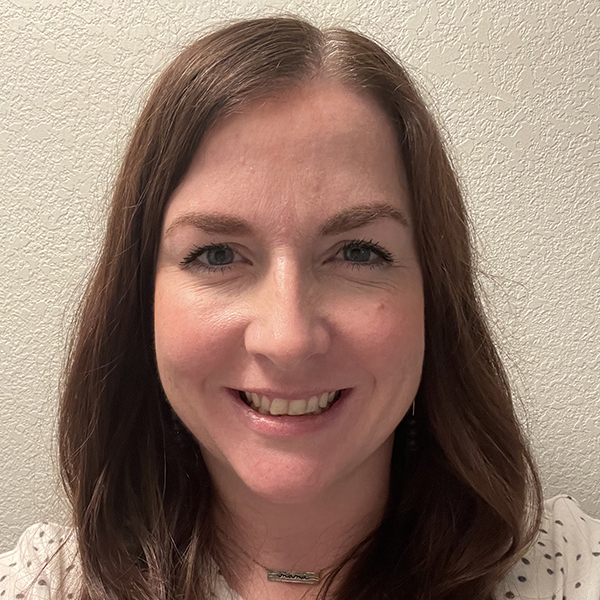+How is RWC different from tutoring?
Tutors typically support students with their existing schoolwork, teaching to address their gaps in knowledge. At RWC, we use a step-by-step approach to train students in the discipline of writing. Our specialized curriculum is based on the Institute for Excellence in Writing’s Structure and Style methodology.
+Is RWC for advanced students or struggling students?
Both! Our students range from experienced writers looking to elevate their skills to beginners seeking foundational knowledge. Regardless of skill or background, we offer students the content they need to become competent communicators. Using a mastery-based curriculum, we introduce techniques and concepts tailored to your child’s understanding rather than a predetermined curriculum. We define learning goals based on your child’s current level and adjust them as they progress.
+Is the RWC program suitable for children with dyslexia?
Yes, but before beginning the RWC program, students should be reading and spelling at grade-level. Because this is not always the case for students with dyslexia, we have partnered with Aspire Academy, a learning center that provides dyslexia screening, reading tutoring, and parent support. After two to three years in the Aspire program, most children reach grade-level reading and spelling skills. At this time, they are ready to begin IEW writing instruction at Rose Writing Center. You can read more about our partnership with Aspire Academy here. Once students with dyslexia begin the RWC program, we make modifications to support them as described in the answer to the next question.
+How can your program be tailored to support students who have learning difficulties or disabilities?
Our program is tailored to meet the needs of a wide range of students, including those with ADD/ADHD, dysgraphia, dyslexia, and auditory processing disorders. To support these students, we have made the following adjustments to our curriculum:
- Streamlining homework assignments by having children complete writing in class under the guidance of the instructor.
- Scribing for children to separate the mechanics of writing from the act of thinking and expressing ideas.
- Reviewing a child’s rough draft during class to model and reinforce the revision process.
- Providing custom lessons when a child’s performance indicates a need for greater practice.
- Incorporating lessons on executive functioning skills, such as time management and study habits.
Before enrolling your child, we recommend scheduling a consultation to ensure that we can accommodate their specific needs. During this time, we can determine which of our qualified instructors is best suited to teach your child.
Students with learning disabilities often require private lessons, which allow for the most accommodations. In addition, these learners tend to make slower progress due to the specialized nature of their learning. As part of our commitment to your child’s education, we ask that parents come prepared to invest in and maintain their child’s long-term development.
+What ages does RWC teach?
We currently enroll students in grades 3-12.
+What is the best age to begin? Is there anything my child is expected to already know?
Most students start their formal writing education around the third or fourth grade. While our program reinforces proper writing mechanics, such as handwriting or spelling, we do not formally teach these skills. Your child is ready to begin when they can form letters and age-appropriate words with relative ease. In addition, we find that K-2 learners are still developing the focus needed for productive online learning. Nevertheless, every child is different, and we always welcome the opportunity to discuss your child’s potential at RWC.
+What kind of results can I expect?
Parents have reported observing the following in their children:
- An improved outlook on writing
- Greater independence in writing
- Increased confidence during all stages of the writing process
- A stronger command of grammar
- A more robust and precise vocabulary
- Enhanced reading comprehension skills
- Improved ELA performance
- Higher SAT/ACT scores
+How long does my child need to attend RWC?
Each child’s length of study is relative to their specific learning goals:
The first year of our program introduces students to the IEW Structure and Style Methodology and demystifies the writing process. In developing a more systematic approach to writing, students come to view it as a valuable endeavor. This shifting mindset empowers second-year students to refine their knowledge by using IEW’s Structure and Style tools with greater purpose and precision. As students gain confidence and accuracy, they are ready for the more rigorous coursework of years three and beyond. During this time, students learn to trust themselves as writers, exploring advanced techniques, taking risks with new language, and providing more sophisticated analysis.
As any seasoned writer will tell you, the best writers are always striving to incorporate new skills and expand their abilities. As writers ourselves, our program aims to do the same for our students.
+How much homework will my child be assigned?
Each homework assignment is carefully designed and integrated into the curriculum to guide your child toward becoming a skilled and independent writer. You can expect your child to complete roughly 1-2 hours of homework per week.
Each week your child will produce two drafts of a single composition. Compositions vary in length from 1-3 paragraphs, with students submitting their rough draft 3-4 days after their weekly lesson. Upon submission, instructors review student drafts and return them with detailed feedback for students to incorporate into their final draft.
Here is a typical weekly homework schedule:
| Date | Assignment |
| After class | Students submit the outline that they created in class. |
| Two days after class | Students submit any assigned brainstorming, vocabulary, and grammar worksheets. |
| Three days after class | Students submit their rough draft. |
| Four days after class | Instructor returns the rough draft with feedback and corrections. |
| Six days after class | Students submit their final draft. |
| Within one week of submission | Instructors return the final draft with a numeric score according to the assignment’s rubric. |
+How do you keep parents informed of their child’s progress?
Our Parent Portal provides easy access to your child’s progress. Each week, instructors update this portal with notes on attendance, course material, and student performance. In addition, we issue detailed Learning Reports three times per academic year, inviting parents to schedule parent-teacher conferences to discuss their child’s progress.

 In 2013, Ms. Lauren Bridgeford graduated with a BA in Languages, Literature, and Criticism from Hunter College. She has also obtained her DELTA (Diploma in Teaching English to Speakers of Other Languages) certification from Cambridge University. Currently, Ms. Bridgeford is a Registered Instructor accredited by the Institute for Excellence in Writing, and she is pursuing her master’s degree in Secondary Education.
In 2013, Ms. Lauren Bridgeford graduated with a BA in Languages, Literature, and Criticism from Hunter College. She has also obtained her DELTA (Diploma in Teaching English to Speakers of Other Languages) certification from Cambridge University. Currently, Ms. Bridgeford is a Registered Instructor accredited by the Institute for Excellence in Writing, and she is pursuing her master’s degree in Secondary Education.



 Deanna Heikkinen has been privately teaching writing as well as history, literature, and art history to students grades 2-12 for over six years. Prior to that, she was a tenured professor of humanities at Los Angeles Valley College with a focus on teaching the Great Books of Western Civilization. Additionally, she taught world history, western civilization, Native American history, and anthropology at the college level. Whether teaching elementary, middle, or high schoolers for Rose Writing Center, Deanna's diverse background allows her to serve as our test prep, academic support, and custom lesson specialist.
Deanna Heikkinen has been privately teaching writing as well as history, literature, and art history to students grades 2-12 for over six years. Prior to that, she was a tenured professor of humanities at Los Angeles Valley College with a focus on teaching the Great Books of Western Civilization. Additionally, she taught world history, western civilization, Native American history, and anthropology at the college level. Whether teaching elementary, middle, or high schoolers for Rose Writing Center, Deanna's diverse background allows her to serve as our test prep, academic support, and custom lesson specialist.



